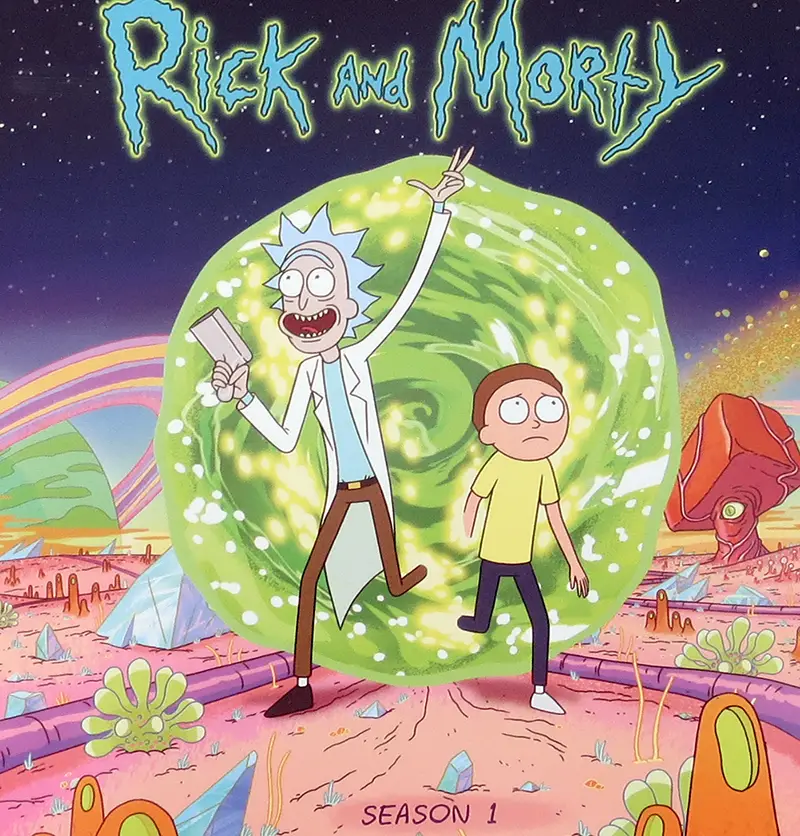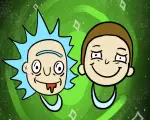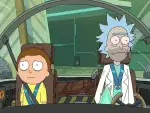Since the first episode of “The Flintstones” aired in September 1960, the transformation of animated television sitcoms has been one of self exploration and philosophical conversation. In recent decades, a countless number of animated shows have occupied the theater of pop culture and the daily lives of their viewers in ways that earlier generations of even the longest running programs failed to do.
The nature of animated shows reshaped the way audiences watch television. This is most evident during the 1980s and 1990s when Nickelodeon and Cartoon Network debuted to the public as animated television networks specifically geared toward young viewers. The concept of an animated sitcom has developed from mere sketches of a child’s imagination to entire episodes—entire seasons—dedicated to asking some of life’s deepest philosophical questions.

Perhaps one of the most important animated shows to ask these questions is the science fiction sitcom “Rick and Morty.” Premiering in December of 2013 on Cartoon Network’s “Adult Swim,” the premise of “Rick and Morty” and its self reflective characters has been discussed among mature audiences who find themselves asking the same questions that the show presents to kids through the absurd adventures of scientist Rick Sanchez and his grandson Morty Smith.
The significance of the duo’s fantastic experiences as they travel across various dimensions of time and space is that it is an acknowledgment of two irreconcilable facts: that humans exist in a universe that is utterly indifferent to them, and that their attempts to understand their own existence are relentlessly unmet.
What lurks in the dialogue and the profane—sometimes grotesque—scenes of Rick and Morty are questions about the incomprehensible space beyond earth and their own insignificant place in the universe.
Drawing inspiration from the science fiction horror pioneered by H.P. Lovecraft and based on a philosophical school of thought called Absurdism, “Rick and Morty” explores the conflict between the human tendency to seek meaning in life and the subsequent inability to find any. Sharing a common theoretical basis with existentialism and nihilism, the absurdity that unfolds in each episode is based on the idea that its characters are relentlessly caught up in a dichotomy with meaningless, illogical situations and actual life.
This is evident in the differences between Rick—who seems to be on a constant search for the meaning of life—and Jerry, who, because of his own blissful stupidity, is perfectly content with ignorance and toiling away at the mediocrity of his own life.
While each episode of Rick and Morty is important within its own rights, Rick Potion #9 in particular is an excellent example of how its characters struggle between seeking the meaning of life and the knowledge that there is no point in living anyway.
When Morty develops a crush on a girl at school, he employs the help of his grandfather to provide him a love serum to make Jessica, his love interest, requite his affection. In a series of absurd events that occur after Rick attempts to administer the serum to her—and subsequently provide an antidote—the world’s population is quickly turned into horrible mutated mantis-people who want to eat Morty.
Soon, Rick realizes that the situation has reached a point beyond repair. Rather than create another antidote, he finds another dimension in which two specific things have occurred: alternate versions of themselves have created a working antidote, but they have also died after discovering the antidote. Rick and Morty enter this new dimension, bury the bodies of their own selves in the backyard and slip right back into a new version of the same reality—with no one else noticing the insanity that has just occurred.
Morty is horrified at the sight of his own disfigured corpse and the task of burying it as if nothing has happened. His frantic concern is addressed by Rick in the simplest of ways:
Morty: “But what about the reality we’ve left behind?”
Rick: “The answer is, “Don’t think about it.”
This is one of the most important lines in all of “Rick and Morty,” however short it may be.
Don’t think about it. Don’t think about the possibilities that may occur in other universes, don’t think about the death of your other self—just accept that it happened and resume your life in the next dimension. In the vein of absurdism and the conflict between Rick’s active and passive nihilistic perspective, it is best to embrace the pointlessness of life and move on from it.
The concluding dialogue of the episode does well to summarize the premise of Rick and Morty in a way that other episodes don’t quite achieve:
Morty: “Nobody exists on purpose, nobody belongs anywhere, everybody’s going to die. Come watch tv.”


















[…] Σημαντικό μοτίβο της σειράς αποτελεί ο κοσμικός παραλογισμός, η ιδέα δηλαδή ότι ο άνθρωπος είναι ένα τίποτα, αν ιδωθεί σε αντιπαραβολή με το αχανές σύμπαν και τους κόσμους που περιλαμβάνει. Μέσα σε αυτό το σύμπαν, ο Ρικ δεν είναι απλά ένας ακόμα κόκκος σκόνης, όπως όλοι εμείς. Είναι ένας είδος θεού. Δεν διατρέχει τους γαλαξίες κάνοντας ωτοστόπ. Οδηγώντας τον αυτοσχέδιο ιπτάμενο δίσκο του, ξεναγεί ο ίδιος το Μόρτυ σε σε κάθε πιθανό και απίθανο γαλαξία. Αυτό το θέμα έχει σχολιαστεί αρκετά και μπορείτε να διαβάσετε περισσότερα εδώ. […]
[…] Texto original: Study Breaks […]
[…] The Philosophy of Absurdism in ‘Rick and Morty’ […]
[…] is Rick and Morty (2013–), which uses the multiverse as a source of comedy by focusing on the absurdity of its existence rather than the terror of it to overwhelming critical success. In short, the multiverse has been […]